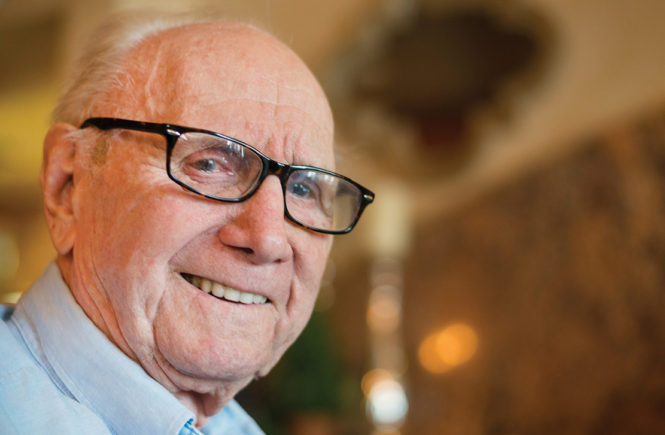The man, the myth, the legend... we got more than we bargained for when we traveled to St. Augustine, Florida, to do lunch with one of Ocean City’s most beloved — and controversial — founding fathers
INTERVIEW BY JONATHAN WESTMAN AND NICK BRANDI
PHOTOGRAPHY BY GRANT L. GURSKY
With a vast blue ocean, beige-sand beaches, sunny forever skies and a swirling kaleidoscope of tourist attractions, it’s safe to say that modern Ocean City is a place drenched in fun and color. But there was a time earlier in its history as a fledgling resort community that Ocean City derived its excitement not so much from a place but from a man. A man with a vision. A man named Bobby Baker.
Robert Gene Baker was born in 1928, in Pickens, South Carolina. The child of rural working-class stock, he would rise from humble roots through sheer cleverness and determination to become a major player within the storied chambers of power itself — Washington, D.C. At age 25, he became the youngest elected secretary to the Senate Majority in the nation’s history and could number sitting and future presidents of the United States among his closest confidantes. The relationship he forged with Lyndon B. Johnson was so close, in fact, that Baker was not only considered the 37th vice president’s protégé and most trusted advisor, he had earned the nickname “Little Lyndon” on Capitol Hill. During his time center stage in the maelstrom of high-stakes politics, Baker would come to know both the pinnacle of glory and depths of scandal with equal intimacy.
In May of 1959, Baker acquired a rather unremarkable parcel of land on Block No. 200 of a desolate stretch of road known then as Fenwick Avenue/Ocean Highway. Through Baker’s bold vision, that barren tract would be transformed into the legendary Carousel Motel on 117th St. Referred to by the press as “the celebrated playground of the advice and consent set,” the Carousel and its charismatic owner galvanized the entire town with the patina of 1960s Camelot, while catapulting Ocean City toward its destiny as an international tourist mecca. But the Carousel’s early days were fraught with trouble, including a 1962 hurricane that was one of the worst in recorded history — one that left the Carousel in shambles and Baker with six-figures’ worth of debt he hadn’t planned for. Yet, fate would ultimately confront Baker with challenges that made even the “money pit” that was the Carousel seem almost trivial by comparison.
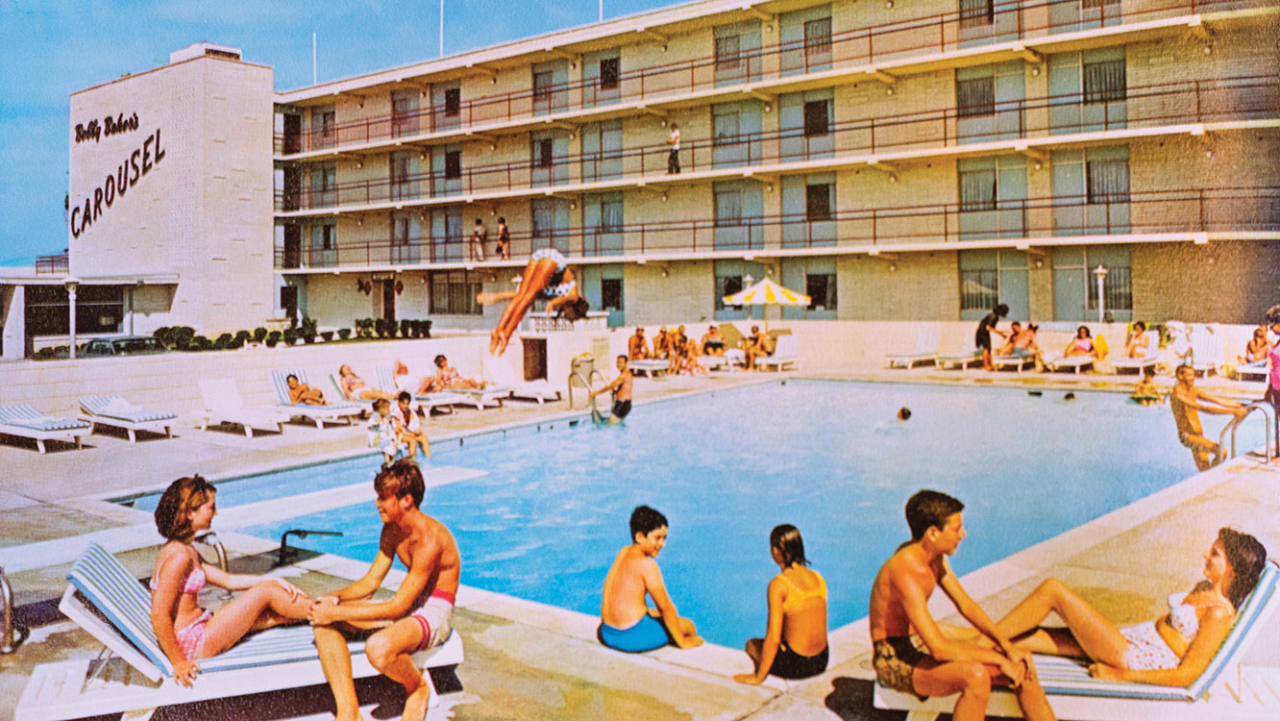
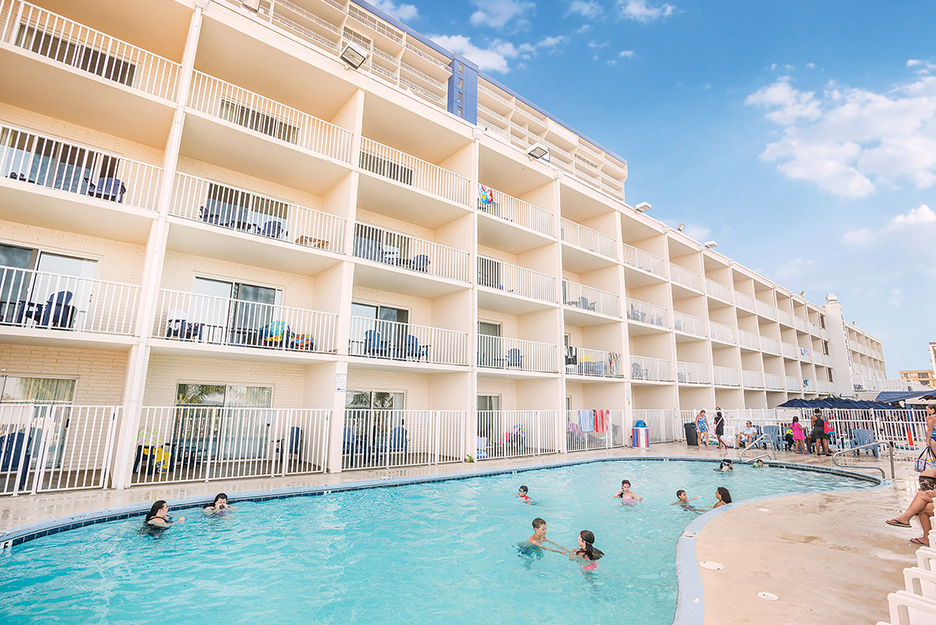
THEN AND NOW: Bobby Baker’s Carousel in 1962 and its present state as photographed in 2015.
When we learned that this Ocean City icon was alive and kicking, the Coastal Style team decided to fly down to his St. Augustine home to get the story from the man himself. We all met for lunch at La Cocina in the Castillo Real Resort Hotel, where the 86-year-old, his daughter Cissy and we shared lunch, laughs and stories from a mercurial yet magical time. From Ocean City and the Carousel to Washington, D.C. and the Kennedys, Baker graciously treated us to a wild ride on the roller coaster of a postmaster’s son from Pickens, S.C.
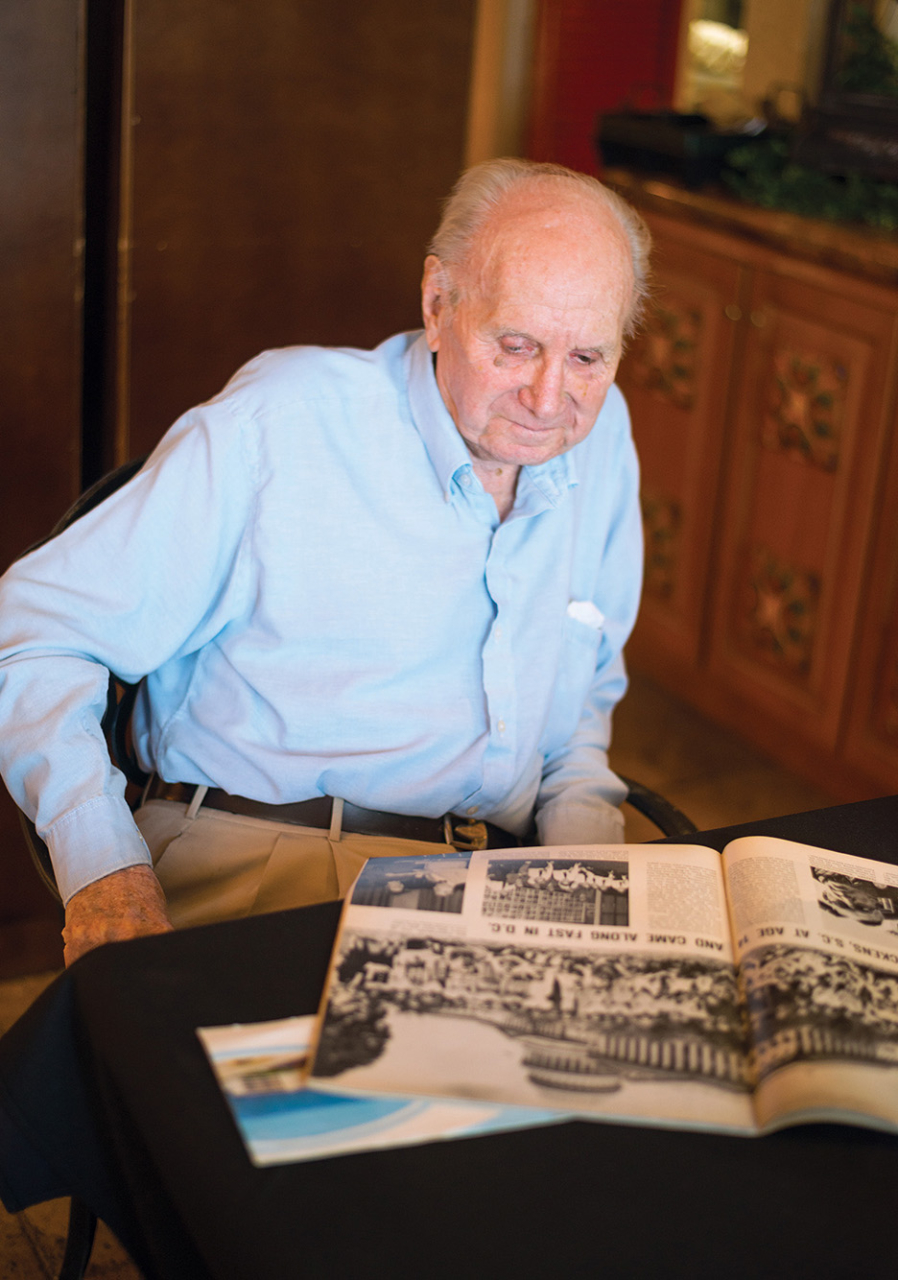
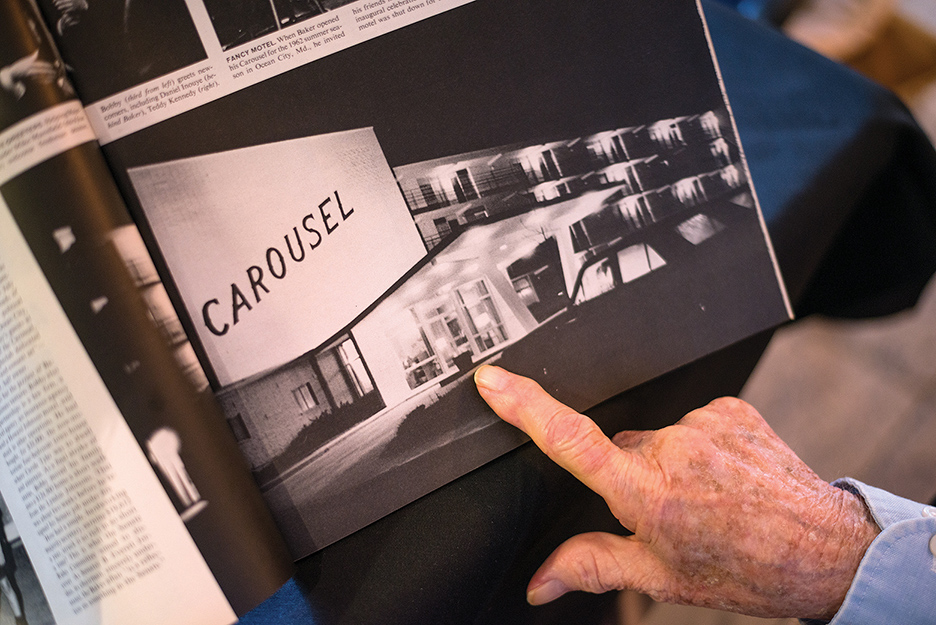
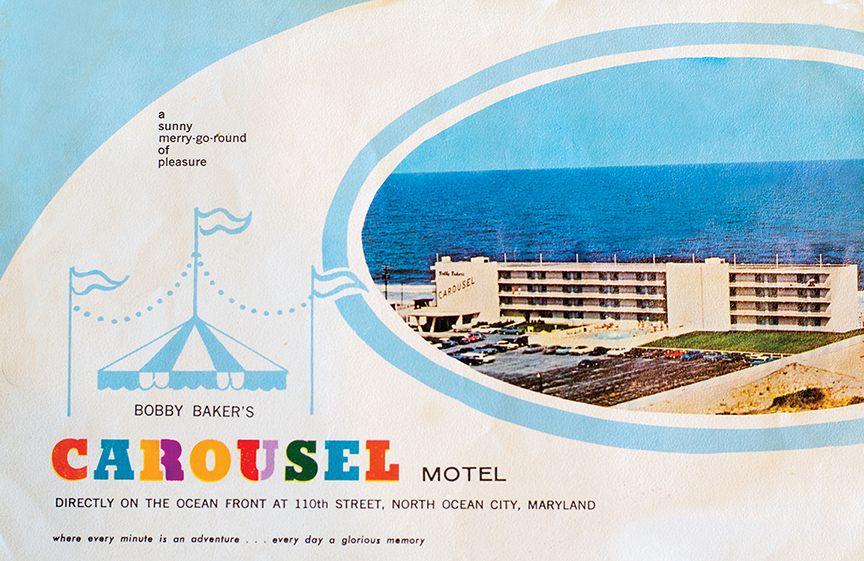
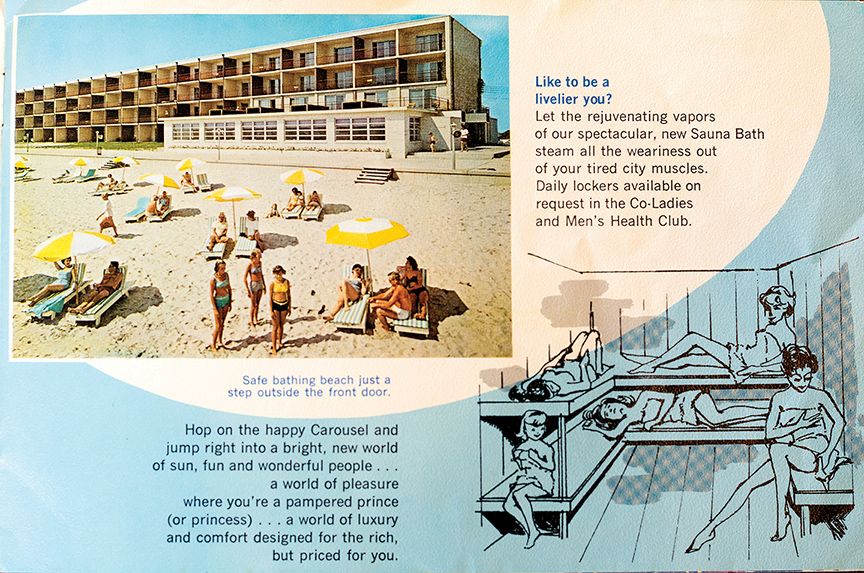
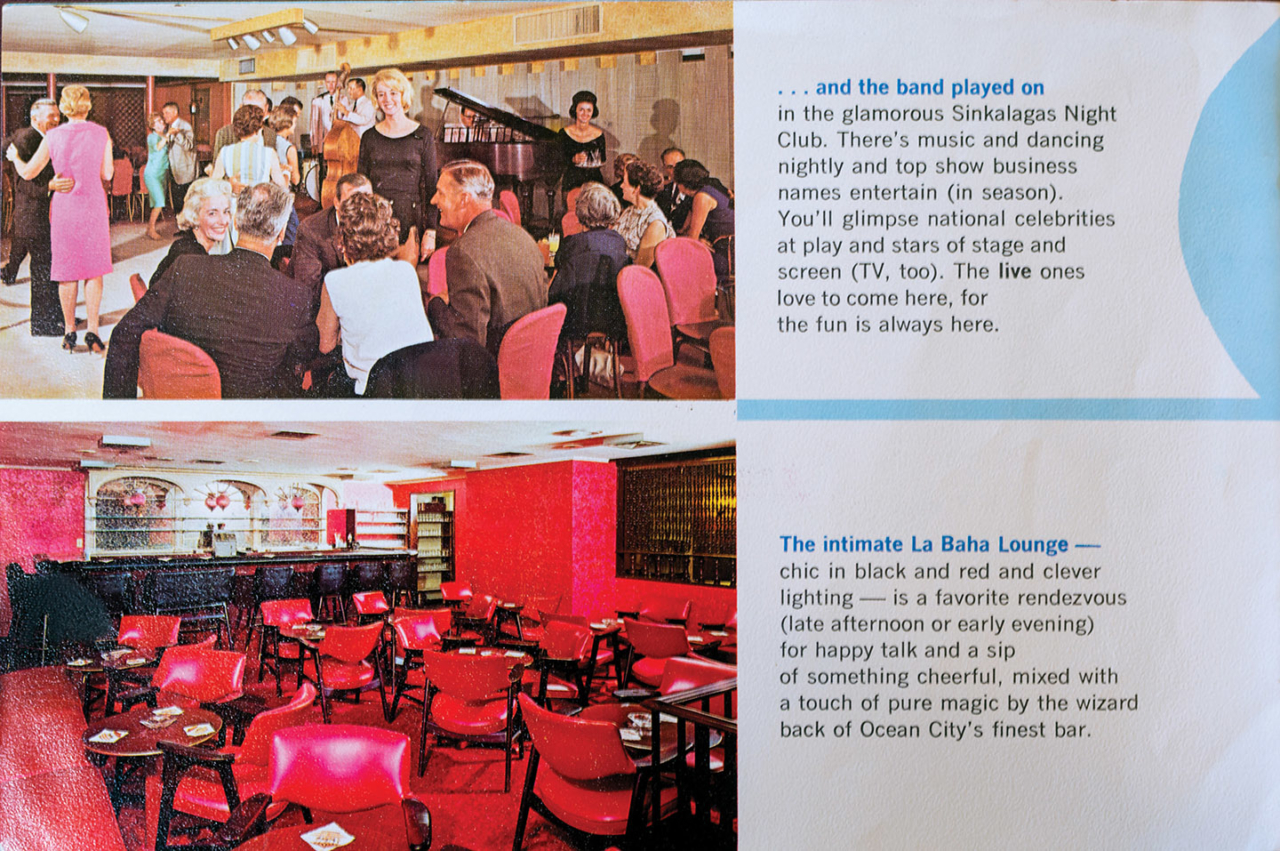
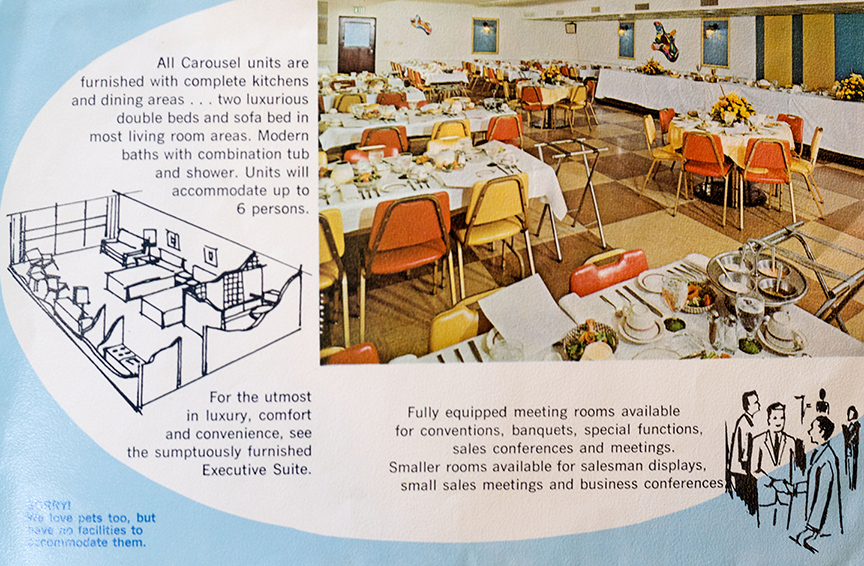
CSM: We’d read that you didn’t think Ocean City was much of a place before you built the Carousel. Is that correct?
BB: At the time, I think the entire town of Ocean City had 1,500 people. Somebody told me they have 300,000 now — and all kind of golf courses. I am so proud of what has happened to this beautiful community.
Do you remember encountering any resistance from local citizens or government when you were building the Carousel?
No. People realized that the Carousel would bring a lot of attention, business and many jobs to the area, so people were overwhelmingly supportive.
The Carousel had a nightclub, correct? Please tell us about it.
It was called the Sinkalagas. It was just a large banquet room with a raised stage and a long bar that hosted bands and other acts.
Do you remember any of them?
The Platters, The Admirals, and [comedian/political satirist] Mark Russell, who drew both locals and DCers on vacation.
What did you enjoy most about owning the Carousel?
I enjoyed the Sinkalagas Lounge — later renamed The Wire Tapper — walking on the Boardwalk and watching my kids swim in the ocean.
How often did you get down to manage the motel?
I did not come down to manage. I had my brother, my brother-in-law managing it at times, but it was very hard to get top management to live there in the winter. There wasn’t a lot going on.
Did you come down more often when the Senate wasn’t in session?
Sometimes on the weekends.
If you had it to do over again, would you have made a different a choice or done anything differently regarding the motel?
My only regret — and the biggest mistake I made in Ocean City — was with the Phillips family, when they wanted to merge with us and I turned them down. That’s the dumbest mistake I ever made. They went on to become one of the great seafood empires in the United States; they became a billion dollar company. Ms. Phillips was a lovely lady.
What was your vision for the Carousel in Ocean City?
I used to go with my wife to Puerto Rico about three times a year, and I met Bobby Lehman, who was president of Lehman Brothers. He had done a study of Ocean City and Charlotte, North Carolina, and he wanted me to build a 500-room convention hotel in Ocean City and Charlotte. I bought 20 acres on Interstate 85 in Charlotte, and I was going to tear down the Carousel and build a 500-room convention hotel — and then I had trouble [referring to his political and legal scandals in Washington, D.C.]. But Bobby Lehman was one of my heroes.
Many people have wondered then and now why you and Al Novak decided to purchase property so far away from the main drag of Ocean City. Some have speculated it was so that powerful D.C. politicians could cavort in secrecy, without the probing eye of the press corps and other Washingtonians.
I bought the property on 117th St. solely based on affordability. My partner, Al Novak, was so happy to have found a plot of land that big for only $75,000 that he hadn’t really thought it through about the [lack of filtered town] water. That was by far the biggest handicap. [Longtime Ocean City real-estate developer] Jim Caine and I put a lot of pressure on town officials to run water and sewer lines to the motel, because before that, you’d pour water and it would turn black. I had optioned the other land for a parking lot if they expanded the motel by 500 rooms.
We’ve heard many stories in Ocean City about the good ol’ times had at the Carousel and the nightlife there. Is that true?
I think that’s true!
Why was that important to you that it had an exciting nightlife?
Well, basically to keep the business coming year-round. You need that to have a dependable cash flow.
Could you have ever envisioned that it would become what it is today?
I did. Because of the people in Baltimore and Washington and Philadelphia, and Atlantic City was going hell. I mean, nobody wants to retire in Atlantic City. So, they really had to come to Ocean City. It’s a great city.
You were regarded as one of the most influential people during your time in Washington. Would you concur with that statement?
I think that’s accurate. You know, when you can tell the president and members of the Senate what’s going to happen, you have a little influence. I had both Republican and Democratic friends. There was a Republican senator from Maryland named J. Glenn Beall, and he liked to go to the racetrack, so I would protect him with a lie, or what they call in the Senate a “pair” [which allowed senators to be absent from a vote yet register their stance for the record without affecting the outcome of the vote]. I used to use [former presidential candidate] Senator Eugene McCarthy to give him a pair. And so one time I needed a pair on a very tight Social Security vote, and I asked him to give Senator McCarthy a vote, and he did. Well, [former Senate Minority Leader] Senator [Everett] Dirksen jumped on me and said, “Goddamn you! Stay on your side of the aisle!” But we were good friends. You don’t have that kind of camaraderie now. It’s a pity.
Tell us about the first time you met Lyndon Johnson, please.
The first time I met Lyndon Johnson was in 1948. He was a congressman from Austin, Texas. He had John Connally [former governor of Texas and victim of Lee Harvey Oswald on Nov. 22, 1963], who at the time was his executive assistant, call me and say, “Can you be in Congressman Johnson’s office at 8:00 Saturday morning?” I said, “Yes, sir.” So, I went in, and Senator-elect Johnson said, “Mr. Baker, they tell me you’re the smartest son of a bitch over there.” That was my introduction to him. When he became the [Senate] Majority Leader I was 25, and he selected me to be the youngest officer in the history of the U.S. Senate. It’s never been topped.
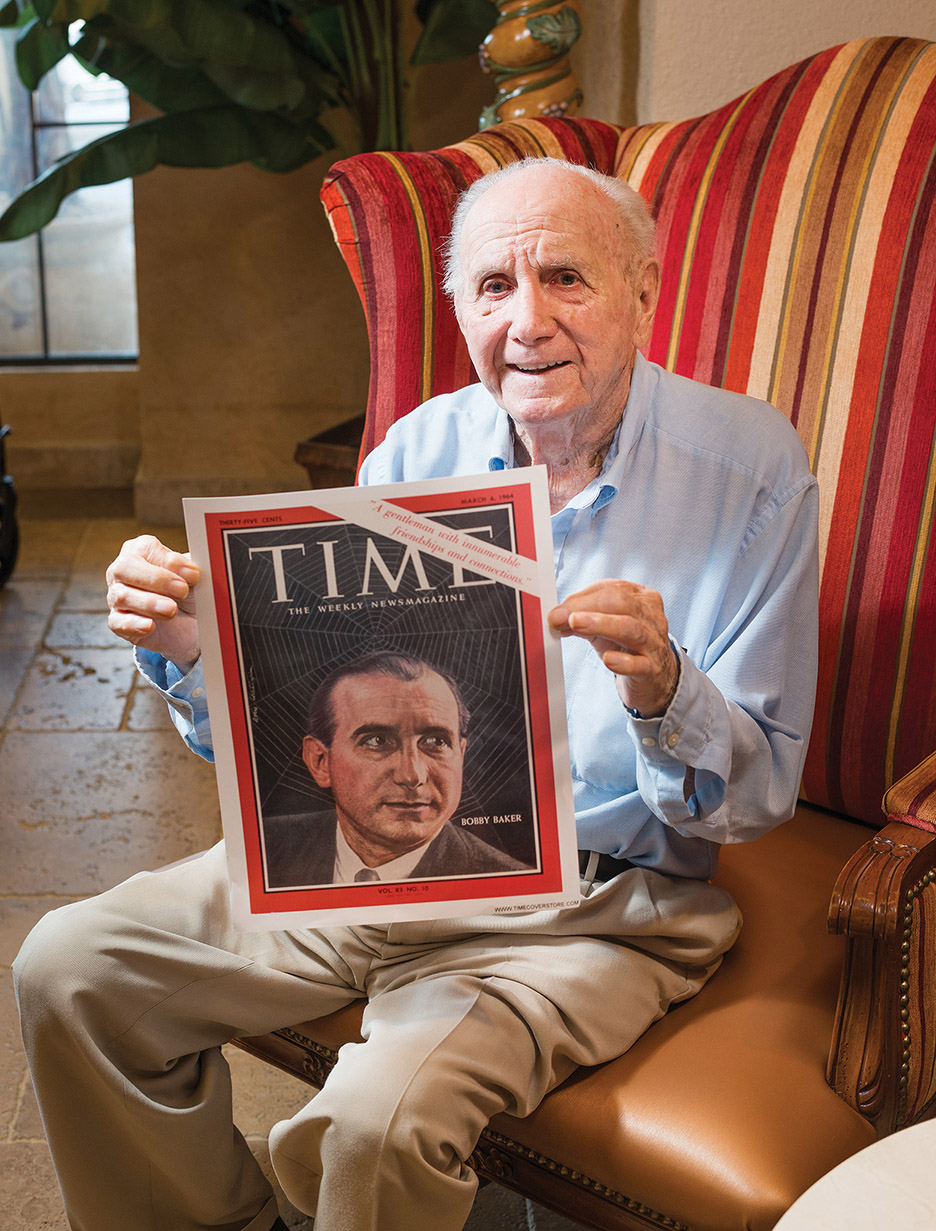
TIME TO SHINE: Bobby Baker was featured on the cover of TIME magazine on March 6, 1964
[Holding up a copy of the TIME magazine issue that featured Baker on the cover]
Do you remember this?
Yes, I was on the cover of LIFE, too. Old man Joe Kennedy was a partner with Henry Luce [publisher of TIME and LIFE], so he was doing a hatchet job on me. Bobby [Kennedy] hated LBJ.
I was a delegate to the [Democratic National] convention in 1960 from South Carolina, and when Senator John F. Kennedy defeated Lyndon Johnson on the first ballot, at 6 o’clock in the morning, I was about 3 doors down from Lyndon Johnson. [Award-winning journalist and former Johnson administration press secretary] Bill Moyers was staying in the Johnson suite. He knocked on my door and said, “The Leader wants to see you,” and I said, “Tell him to go to hell and he’s got bad manners,” because he didn’t come to pay tribute to our delegates [for having supported his candidacy for the nomination, as was a longstanding custom]. When [Moyers] came back, he said, “Bobby, it’s a must!” so I took a cold shower and went over. When I went in, Lyndon told me: “Your buddy Jack Kennedy is on his way here. What do you think he wants?” I said, “He’s gonna tell you you’re the smartest, ablest man he ever met, and he’s gonna offer you the vice presidency. Number one, you’ll get to go to the best funerals in the world. Number two, you’ve had the worst heart attack a man ever had, and three, you’ll get to cast about three votes a year [as president of the Senate] to break a tie, and I recommend you take it.” He said, “That’s the best advice you ever gave me.”
So [Jack] Kennedy came in and offered it to him, but he didn’t consult Bobby. Bobby came about 30 minutes later and offered Johnson the chairmanship of the Democratic National Committee. Old man [Sam] Rayburn said, “Shit, sonny, get outta here.” [Johnson and Rayburn tended to call Bobby Kennedy “sonny” to belittle him]. So [Bobby] was so full of hate his whole life. He really wanted to get rid of Lyndon Johnson.
That’s a fascinating story.
That’s a true story.
How would you describe your time with JFK?
It could not have been better. I never will forget I made an arrangement for a beautiful German girl [alleged East German spy Ellen Rometsch, whom Baker says had frequented — while other highly credible sources assert she was a hostess at — the Quorum Club, a notorious salon in the Carroll Arms Hotel that Baker cofounded and was an official of, widely regarded as a hangout for prostitutes on-call to service the capital’s power elite] who was nonpartisan and making love to politicians, and I arranged for her to have a sexual relationship with the president. He called and said, “Bobby, this is the most sensational sexual experience I’ve had.” He said, “I get a migraine headache if I don’t get a strange piece of ass every night.” I never will forget that. [President Kennedy and I] were good friends.
Are you one of those conspiracy theorists regarding the assassination of JFK, or was it really Lee Harvey Oswald?
Lee Harvey Oswald killed Kennedy, no question.
No question?
Absolutely no question.
Apparently, your experiences with Bobby Kennedy weren’t quite as pleasant as they were with his older brother.
Not really, no.
You and he obviously had your run-ins, and there was definitely bad blood. Do you think that he was just being fiercely protective of his brother, or do you think he was just a mean person by nature?
Well, I can only go by my experience with him, but based on that, I’d have to say he was just a mean person.
What about Johnson? What do you think of him as a president?
I think The Voting Rights Act will go down in history as being one of the great acts of a president, and I expect history to be very kind to him. He and Abe Lincoln were great heroes.
What do you think about LBJ’s decision not to seek his party’s nomination for president of the United States, paving the way for Bobby Kennedy to become the nominee?
I think simply because of his heart condition, he made the right decision. When he had his heart attack, all of his doctors told me he was gonna die. So, I think he made the right decision.
What was it like when you started as a page on Capitol Hill?
Everybody was very kind. Like, Harry Truman was a senator from Missouri, and he would snap his fingers and say, “Sonny, would you be kind enough to get me a glass of water.” He had good manners. Then, there were some drunks who were abusive. You got to know the good and the bad. Being a page was one of the great experiences of my life. You knew the good and the bad.
We enjoyed reading about your family and your early days in Pickens. You seem to really love your father.
My father was one of the truly great men I’ve ever known. You know, he ran seven miles to take the postal exam, and he won by one point, because World War veterans got spotted 10 points; he got 99, and some G.I. from World War I got 88, plus 10. So, my mother had a massive stroke, and he pushed her around for about 20 years. There were 13 widow women left in Pickens, and all 13 said, “Anybody who can push that lady around, I want to marry him!” Three-thousand people stood in line when they found out he had died of rectal cancer.
What do you regard as your greatest accomplishment, Bobby?
Being the youngest elected secretary to the United States Senate Majority.
What was your biggest mistake?
Not suing for prejudice in my legal troubles.
To whom do you owe the biggest apology?
I owe the biggest apology to my wife, Dorothy.
How would you like your epitaph to read?
“He had a great life.” CS
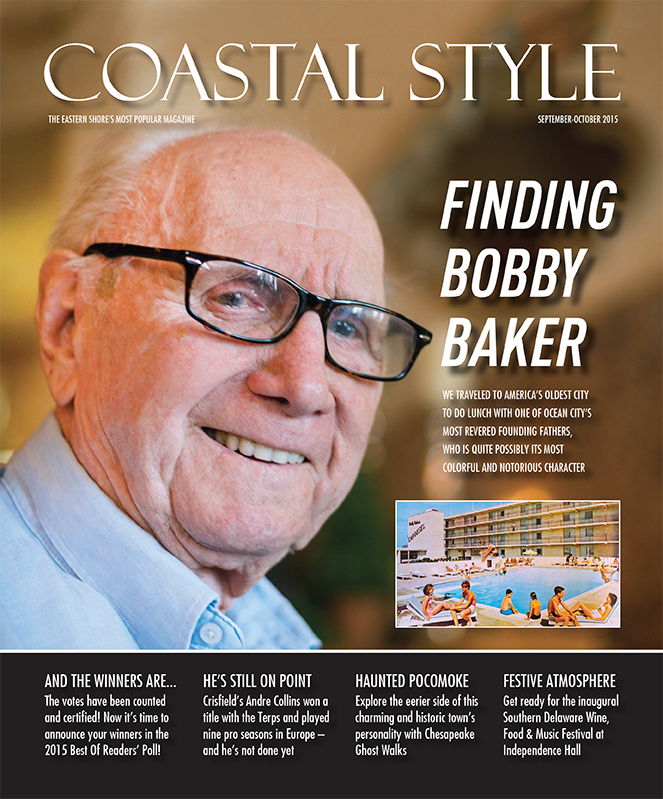
Editor’s note: This story originally ran in the September/October 2015 issue of Coastal Style. Bobby Baker passed away in St. Augustine on his 89th birthday, November 12, 2017.

